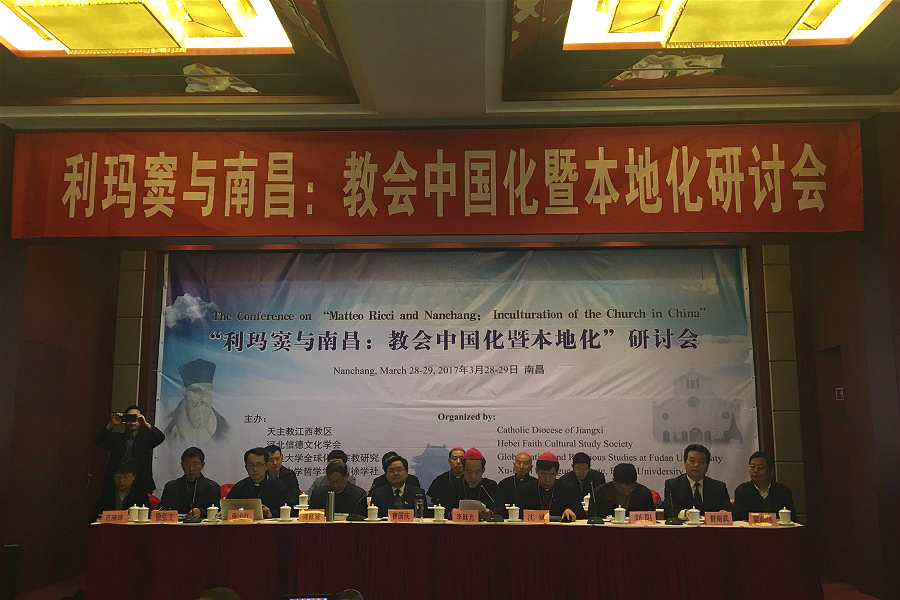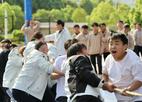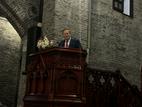Just after the traditional Tomb-Sweeping Festival holiday which falls on April 4, 2017, a hot debate over whether Christians should offer sacrifices to their ancestors and how to remember the dearly departed is held among Chinese Christians. Ancestral worship is considered as a typical contradiction between Christianity and the Chinese traditional culture.
Han Heng, associate professor from School of Public Administration of Zhengzhou University, gives a speech entitled "See How Christians Celebrate the Spring Festival from the Perspective of Inculturation -- Based on the Survey of the Activities Held by the Rural Church of Henan during the Festival" in the Conference on "Matteo Ricci and Nanchang: Inculturation of the Church in China" recently conducted in Nanchang, Jiangxi.
The professor and his workers distributed around 1500 questionnaires to the rural believers in Henan with the help of the seminarians of Henan Bible School during the 2017 Spring festival holiday. The results can show the real situation of the rural church since more than 80% of the respondents live in regions at or below the county level.
The first question is about the Christian attitude of ancestor worship. Most of the believers opposed ancestor veneration and some were against the form of the practice. The custom practiced during the Chinese New Year may be acceptable to a portion of Christians if burning joss paper can be replaced with sending flowers to express remembrance of the deceased ancestors. "This provides a critical revelation beneficial to the integration of the Chinese culture and Christian culture."
The survey finds that some Christians followed the traditional customs for the festival including eating dumplings and pasting Spring Festival couplets while some refused to worship their ancestors. Even there was innovation that the content of the couplets and New Year paintings was related to Christianity.
What was more, during the period, the Christians carried out Christian activities regarding paying a Christian New Year's call and commemorating the dead relatives through prayer. The churches there held praise and worship meetings, retreats for migrant workers who returned to their hometowns and the Bible study.
Based on the survey, Han points out that the difference in the attitudes toward the traditional customs observed during the Spring Festival and the real practices between Christians and non-Christians is not so much as Christians thought. The main difference lied in the attitude of ancestor worship and its practice. For ancestor worship, a portion of believers objected to the form of the worship rather than it alone.
He adds that religions are different in words and the real life. Literal religions are revealed through theological and philosophical theories as the construction and imagination of religions, while religions in the real life are reflected in the practices of believers in their daily life, which are the true state of religions.
He speaks, "There is an urgent need of sinicizing Christianity in terms of literal religions, but Christianity may have been sinicized considering the practices of Christianity."
Translated by Karen Luo












